Genetics
-
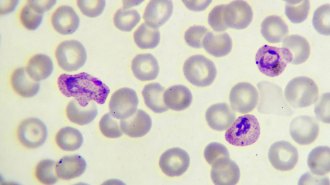 Microbes
MicrobesHow malaria parasites hide from the human immune system
By turning genes on or off, the parasite keeps blood levels low but persistent, so infection doesn’t set off alarm bells for the immune system.
-
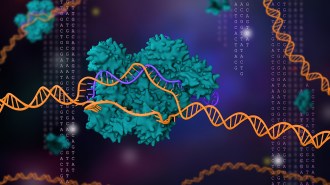 Genetics
GeneticsGene-editing tool CRISPR wins the chemistry Nobel
A gene-editing tool developed just eight years ago that has “revolutionized the life sciences” nabbed the 2020 Nobel Prize in chemistry.
-
 Health & Medicine
Health & MedicineHepatitis C discoveries win 2020 Nobel Prize in physiology or medicine
The 2020 medicine Nobel recognizes work that found that a novel virus was to blame for chronic hepatitis and led to a test to screen blood donations.
-
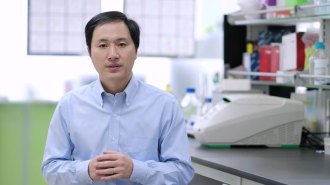 Genetics
GeneticsStrict new guidelines lay out a path to heritable human gene editing
But scientists say making changes in DNA that can be passed on to future generations still isn’t safe and effective, yet.
-
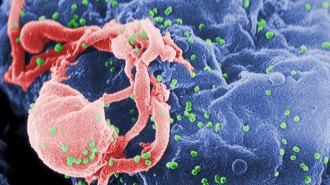 Health & Medicine
Health & MedicineIn a first, a person’s immune system fought HIV — and won
Some rare people may purge most HIV from their bodies, leaving only broken copies of the virus or copies locked in molecular prisons, from which there is no escape.
-
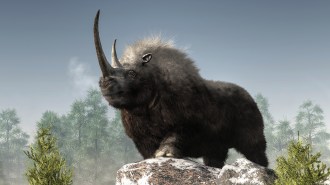 Life
LifeClimate change, not hunters, may have killed off woolly rhinos
Ancient DNA indicates that numbers of woolly rhinos held steady long after people arrived on the scene.
By Bruce Bower -
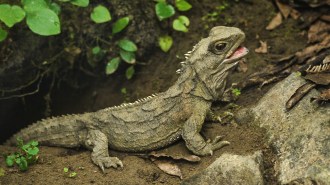 Animals
AnimalsHow tuatara live so long and can withstand cool weather
Tuatara may look like your average lizard, but they’re not. Now, researchers have deciphered the rare reptiles’ genome, or genetic instruction book.
By Jake Buehler -
 Animals
AnimalsAn immune system quirk may help anglerfish fuse with mates during sex
Deep-sea anglerfish that fuse to mate lack genes involved in the body’s response against pathogens or foreign tissue.
-
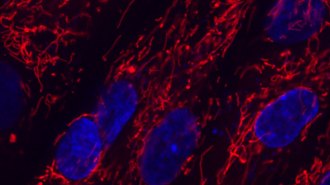 Genetics
GeneticsA bacterial toxin enables the first mitochondrial gene editor
Researchers have engineered a protein from bacteria that kills other microbes to change DNA in a previously inaccessible part of the cell.
By Jack J. Lee -
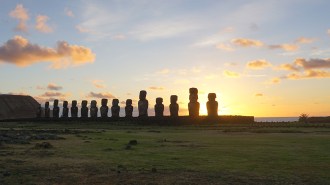 Genetics
GeneticsSouth Americans may have traveled to Polynesia 800 years ago
DNA analyses suggest that Indigenous people from South America had a role in the early peopling of Polynesia.
By Bruce Bower -
 Genetics
GeneticsDNA from a 5,200-year-old Irish tomb hints at ancient royal incest
Ruling families in Ireland may have organized a big tomb project, and inbred, more than 5,000 years ago, a new study suggests.
By Bruce Bower -
 Humans
HumansThe Dead Sea Scrolls contain genetic clues to their origins
Animal DNA is providing researchers with hints on how to assemble what amounts to a giant jigsaw puzzle of ancient manuscript fragments.
By Bruce Bower